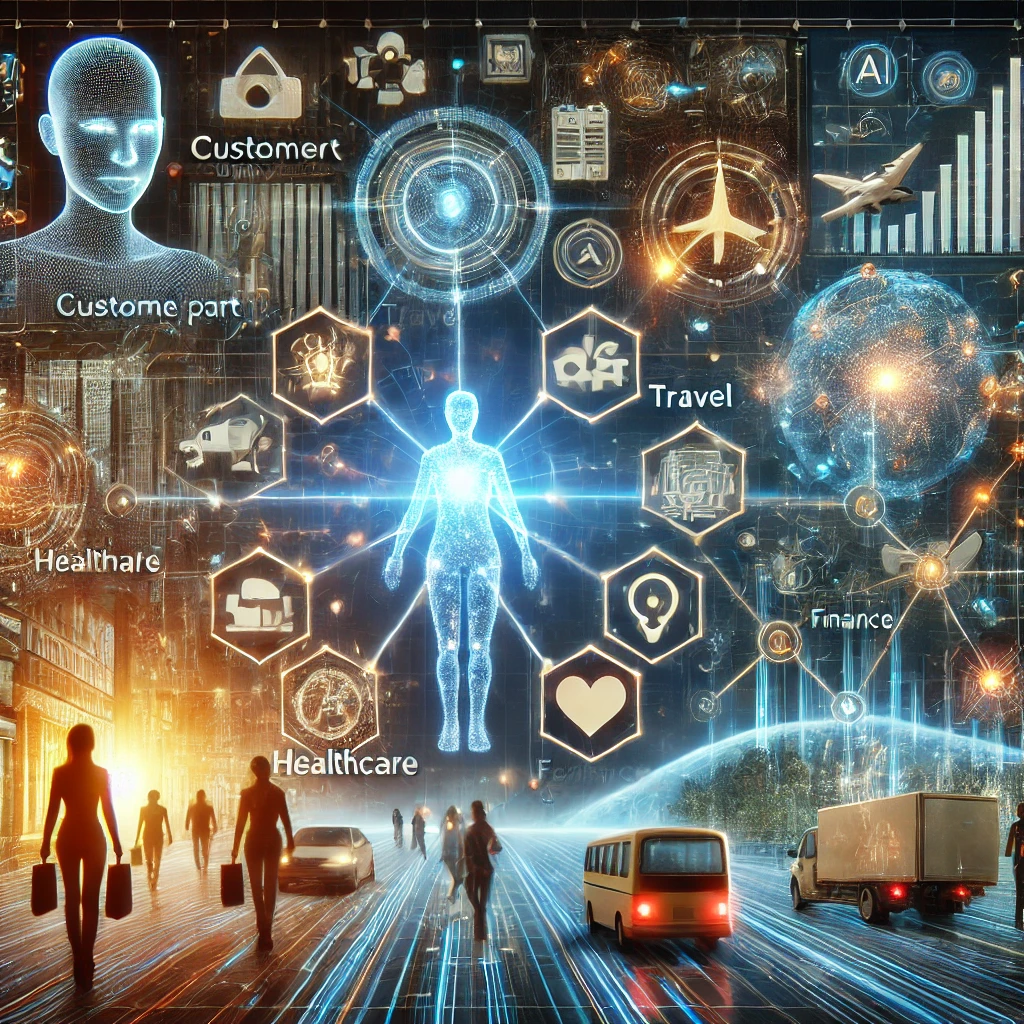TL;DR: The leap from “chatbots” to agentic systems is here: models that plan, use tools, read/write data, and verify themselves. The winners combine deterministic orchestration (graphs, budgets, guardrails) with LLM creativity, RAG grounding, and multimodal I/O (voice, vision, “computer use”). Below: a crisp blueprint, 16 production use cases, KPIs, and a 30/60/90 rollout.
What changed lately (and why it matters)
Tool calling is standard: Models reliably emit structured arguments to call APIs/DBs; your app executes, returns evidence, and the model finalizes.
Grounded answers by default: Retrieval-augmented generation (RAG) with rerankers + confidence thresholds reduces hallucinations.
Multimodal by design: Real-time voice/vision I/O and GUI “computer use” unlock agents for ops, field work, accessibility, and support.
Routing & cost control: Semantic routing sends simple tasks to templates/SLMs, saving large LLMs for hard cases.
Ops maturity: Token budgets, step/time caps, traces, and SLO gates make agents operable (not just impressive).
Reference architecture (copy this)
Client (chat • voice • UI) │ ├─► Router (templates | SLM | RAG | Agent) │ ├─► Orchestrator (deterministic graph: plan → tools → verify) │ • Budgets (steps/tokens/time) • Safety (PII redaction, allow/deny) │ • Caches (response + retrieval) • Observability (traces, metrics) │ ├─► LLM (function/tool calling, JSON mode, streaming) ├─► RAG (vector/lexical search + reranker, confidence thresholds) ├─► Tools/APIs (CRM/ERP/payments/search/code exec/docs) └─► Storage (facts with provenance, TTL’d summaries, audit logs)Design rule: deterministic skeleton; LLM fills parameters and prose.
16 transformative use cases (updated for 2025)
Operate (cost, quality, speed)
Customer Support Autopilot
Containment, first-pass resolution, evidence-linked answers, human handoff for risk.
KPIs: TSR, P95 latency, deflection rate, groundedness.Field Service & IT Runbooks
Multimodal agents read screenshots, run diagnostics, execute safe commands, and generate reports.
KPIs: Mean time to resolve, tool success rate.Supply Chain Control Tower
Live signals (orders/ports/weather), policy-aware replans, proactive alerts.
KPIs: On-time %, stockouts, expedite costs.Finance Close & Reporting
Automated tie-outs, anomaly notes, narrative MD&A with citations.
KPIs: Close time, manual adjustments, audit flags.
Grow (revenue, activation, LTV)
Journey Orchestration & Copy
Channel-aware messaging with evidence and guardrails; automatic A/B with learning.
KPIs: CTR/CVR, unsubscribe, cost/opportunity.Dynamic Pricing & Promotion Ops
Demand signals → candidate prices; human approves; agent pushes to channels and monitors fairness limits.
KPIs: Margin lift, price error rate, fairness checks.Sales Copilot (Pre-/Post-call)
Live note-taking, objection handling, follow-up tasks, CRM hygiene.
KPIs: Time saved/rep, stage velocity, hygiene score.Commerce Assistants (Recs, Bundles)
Evidence-grounded product advice; “Why this?” explanations; accessories with compatibility checks.
KPIs: AOV, attach rate, return rate delta.
Build (software, data, knowledge)
Agentic Code & Data Assist
Ticket → plan → edits → tests → PR; data agents write SQL with schema validation and lineage awareness.
KPIs: PR cycle time, test pass %, data query success.Document & Contract Intelligence
Clause extraction, risk summaries, playbook-driven redlines, e-signature prep.
KPIs: Review time, variance to policy, error rate.Research & Insights Desk
Corpus triage, deduped highlights, source-cited synthesis, Q&A with confidence.
KPIs: Analyst hours saved, coverage, citation integrity.Training & Simulation
Conversational tutors with adaptive curricula; scenario simulators for ops/CS.
KPIs: Time-to-competency, assessment gains.
Govern (risk, compliance, trust)
Fraud & Abuse Triage
Patterning + textual rationale; action only with evidence thresholds; human review on irreversible outcomes.
KPIs: Precision/recall, false positive cost.Policy Copilot (Everywhere)
Inline guardrails for messaging, pricing, privacy; agents block or suggest compliant rewrites.
KPIs: Policy violations, legal review load.Data Steward & PII Redactor
Ingest gates; lineage tagging; deletion workflows; prompts scrubbed server-side.
KPIs: PII exposure, SLA to erase, audit completeness.Risk Narratives & Board Packs
Auto-generated, source-linked memos; scenario analysis with assumptions table.
KPIs: Prep time, exec satisfaction, error escapes.
Build & run checklist
Contracts, not vibes: JSON schemas for tools; validate inputs; idempotent side effects; compensations for failures.
Ground first: retrieval confidence ≥ threshold, else “abstain or ask.”
Budgets everywhere: tokens, steps, wall-clock; fail safe.
Memory design: short-term scratchpad; long-term facts with provenance + TTL; no raw PII in logs.
Routing: templates/SLMs for basics, full agent only when needed.
Observability: trace tool calls, retrieval hits, TTFT, P95, cost/task; slice by route/intent.
Evaluation: environment tasks, not just prompts; acceptance rules per workflow.
Minimal agent loop (pseudocode)
def handle(task): plan = llm.plan(task, tools=list_tools(), policy=policy_rules) for step in bounded(plan.steps, max_steps=8, ttl=45): if step.needs_retrieval: docs = retrieve(step.query, top_k=6, rerank=True) if confidence(docs) < THRESH: return clarify("Need order ID or invoice.") if step.tool: args = validate(step.args, schema=TOOLS[step.tool].schema) result = TOOLS[step.tool].run(args) evidence.append(result) if not verify(step, evidence): plan = revise(plan, evidence) if acceptance_met(task, evidence): return finalize(evidence, citations=True) return escalate("Could not meet acceptance rules within budgets.")KPIs & SLOs that keep you honest
Outcomes: Task Success Rate (TSR), groundedness %, safety violations (target: 0).
Experience: TTFT, P95 latency, clarification rate, escalation rate.
Economics: tokens/task, cost/success, cache hit rates.
Reliability: retrieval recall@K, tool error %, loop rate, timeout rate.
Release gates: block deploy if TSR ↓, safety > 0, or P95 ↑ beyond SLOs.
Risks → mitigations
Hallucinated actions: require evidence or abstain; no irreversible tools without preconditions + approvals.
Prompt injection: sanitize inputs; constrain tool scopes; verify post-conditions.
Eval drift: snapshot KB; pin model versions; run canary suites.
Cost creep: semantic routing; caches; summaries; small models for routine tasks.
Privacy: server-side redaction; least-privilege credentials; region pinning; retention TTLs.
30 / 60 / 90-day rollout
0–30 days (MVP, safe)
Pick 1–2 high-value workflows; define acceptance rules.
Orchestrator + 2–3 tools + RAG with confidence threshold and citations.
Observability (traces, metrics) and basic SLOs.
31–60 days (scale coverage)
Add routing, caches, and clarification prompts.
Introduce human approval for irreversible actions; start A/B on cost/latency.
Build a 50–100 case evaluation set per workflow.
61–90 days (harden)
Canary per route; automatic rollback on gate breach.
Add PRM/validators for step scoring; tighten budgets.
Expand to voice/vision if relevant; publish governance runbooks.
Closing
Agentic workflows aren’t “smarter chat.” They’re goal-seeking systems that plan, act, and verify—under budgets, policies, and SLOs. Build on a deterministic backbone, ground answers in evidence, and measure everything. Do that, and you won’t just automate tasks—you’ll transform how your org operates, learns, and serves customers.


Comments